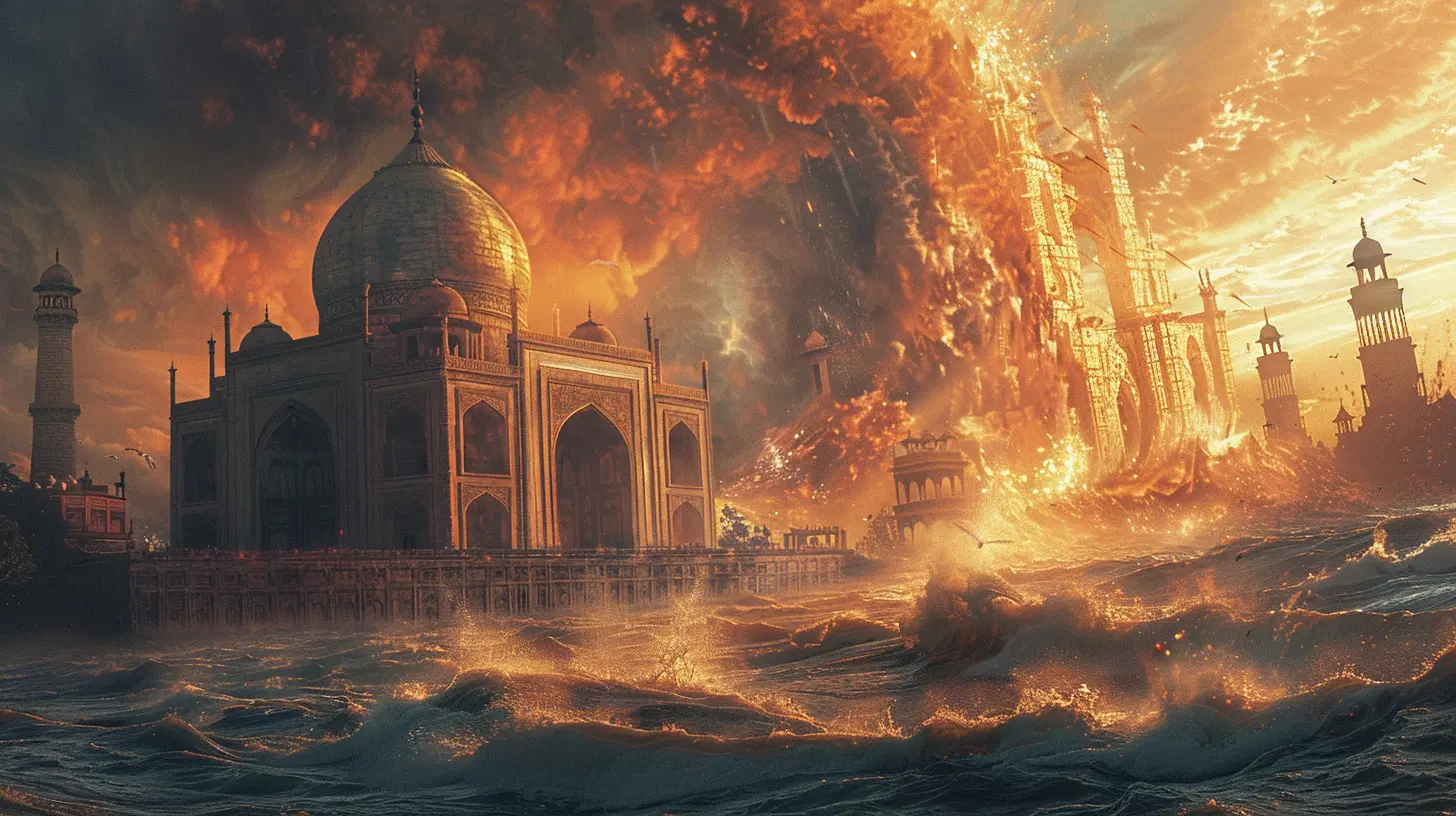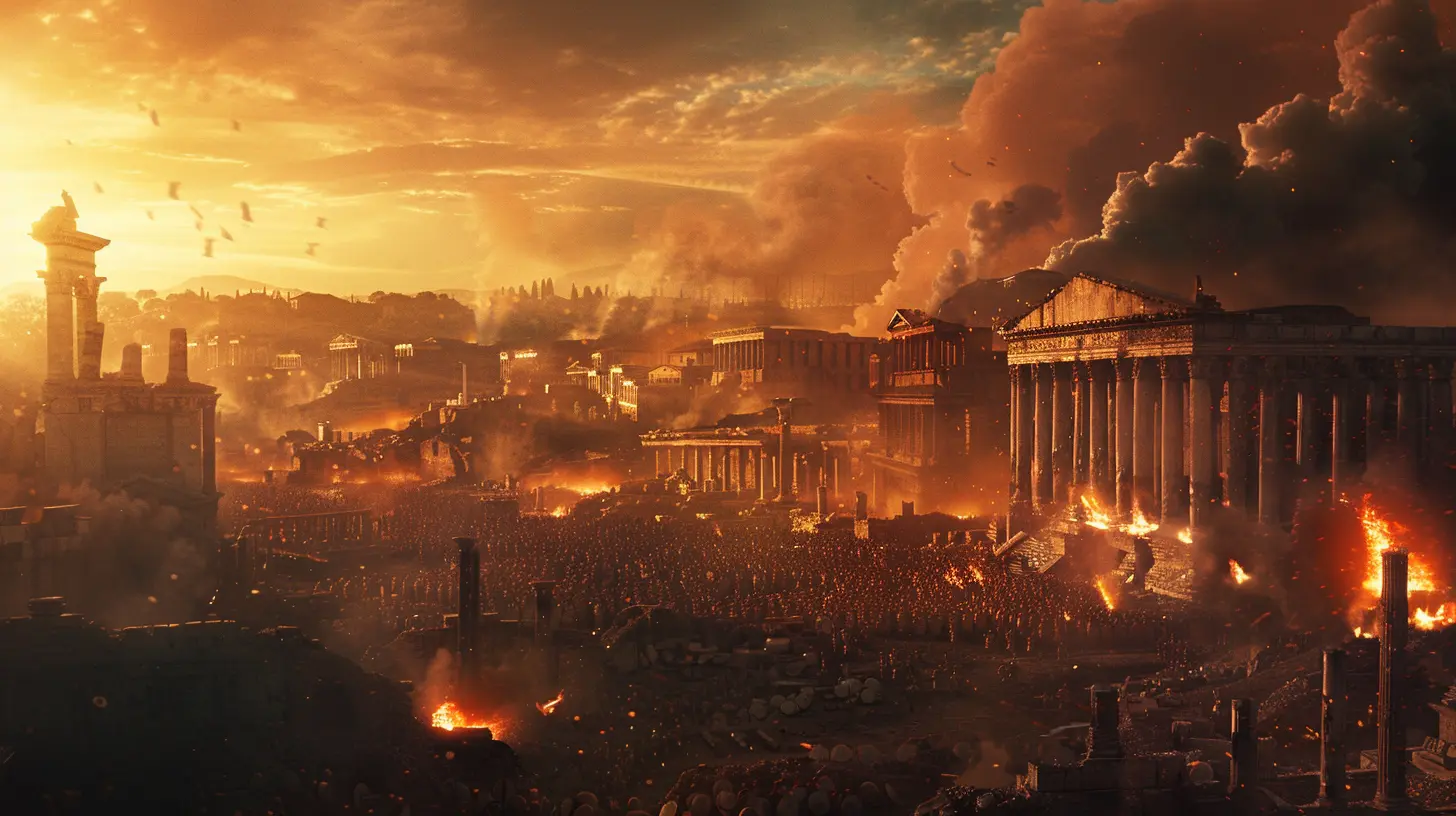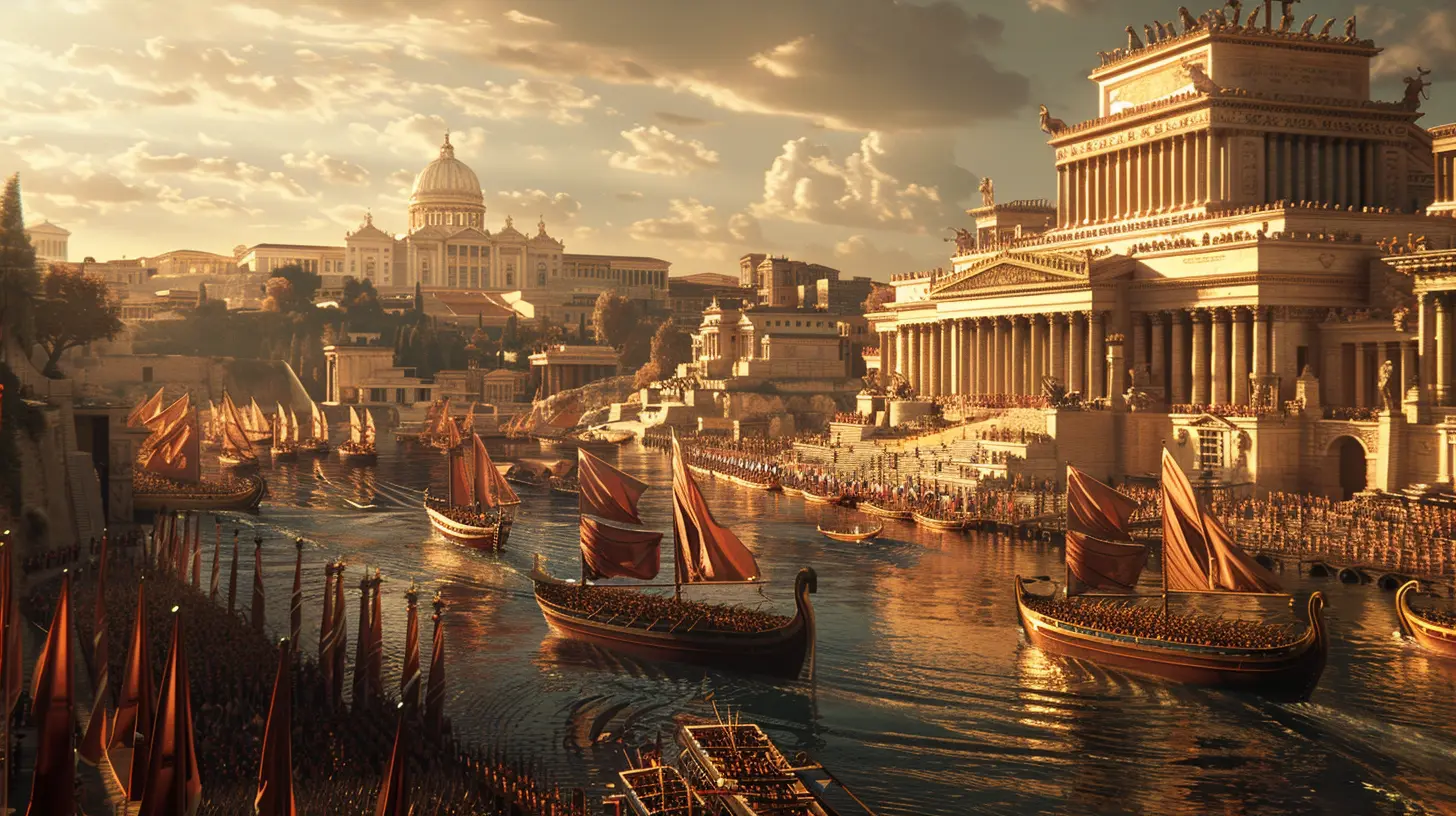The Rise and Fall of Empires: Lessons for Today
16 July 2025
Let’s face it—history can sound a bit... dusty. But beneath all those dates and ancient names no one can pronounce (we're looking at you, Nebuchadnezzar), history is just an epic saga full of power-hungry rulers, dramatic downfalls, and the occasional betrayal that would make Game of Thrones look like a tea party.
One of the juiciest, most binge-worthy storylines? Empires. They rise. They roar. They crumble. It’s glorious—and kind of tragic. But here's the twist: these stories from long ago aren’t just for boring textbooks. Nope, they hold surprisingly relevant lessons for us today—whether you're leading a business, managing a nation, or just trying to survive your group project in school.
So buckle up! We’re diving into the rise and fall of empires, poking fun at their mistakes, and figuring out what we can take away (without needing a time machine).
What’s An Empire Anyway?
Let’s clear this up first: what exactly is an empire? Is it just a big ol’ country with an attitude problem?Sort of.
In simple terms, an empire is a massive political unit, typically led by an emperor (surprise, right?) that controls multiple territories or nations. Think of it as the original version of a mega-corporation—except instead of board meetings and stock prices, you had swords, conquests, and the occasional elephant cavalry.
Some famous empires? The Roman Empire, British Empire, Mongol Empire, Ottoman Empire... the list goes on. They all started small, got big (sometimes ridiculously big), then crashed harder than a laptop in finals week.
The Rise: How Empires Get Their Swagger On
Before we start doomscrolling their collapses, let’s look at why and how empires rise. Because let’s be real, these guys were doing something right at the beginning.1. Charisma + Strategy = Power
Pretty much every empire starts with a high-energy leader who’s part visionary, part conqueror, and probably part sugar-high toddler. Alexander the Great wasn’t called “the Great” because he hosted swanky dinner parties—he was smart, strategic, and good at convincing people to follow him into battle. Like, a lot of battles.Empires rise when there's a combination of strong leadership, serious ambition, and a good chunk of luck. Kind of like starting a startup—except instead of investors, you need soldiers.
2. Military Muscle
Let’s just say empires didn’t expand with friendly handshakes and welcome baskets.Most empires got massive thanks to some serious military power. The Roman Empire built one of the most advanced armies of the ancient world—disciplined, innovative, and terrifying if you were on the wrong side of the spear.
Lesson? Don't underestimate the role of strength and structure. Whether it's an empire or your fantasy football team, a solid defense makes a huge difference.
3. Economics, Baby!
Money talks—and empires listened. Controlling trade routes, setting up taxes, and exploiting (ahem, "utilizing") natural resources helped empires bankroll their military campaigns and build those jaw-dropping monuments.Want proof? Just look at the Silk Road. It wasn’t just about fancy fabrics—it helped grow empires by connecting the East and West like an ancient Amazon Prime.
The Fall: Where It All Goes Downhill (Fast)
Okay, now for the fun part: the fall. Because let’s admit it—watching powerhouses crumble under their own weight is weirdly satisfying.Empires fall for lots of reasons, and usually, it’s not just one thing—it’s a whole spicy stew of mistakes. Grab your popcorn.
1. Overstretch Syndrome (Yes, That’s a Thing)
Imagine trying to manage a group text with 120 people across 8 time zones. Now multiply that by 100. That’s basically running an empire.Many empires got too big for their togas (or turbans or crowns). They expanded so far that communication broke down, rebellions started popping up like pimples before prom, and suddenly, everything felt like a bad episode of Survivor: Imperial Edition.
The Roman Empire? Classic case. They split into two just to keep things together. Spoiler: it didn’t work.
2. Internal Drama
Empires are like reality TV—if it’s not outside enemies, it’s the drama inside that causes the fall. Corruption, civil wars, poor leadership, economic crashes… the works.Take the Mughal Empire, for instance. It had an amazing start, incredible architecture (hello, Taj Mahal), and impressive wealth—but later rulers were more interested in lounging than leading, and their nobles were too busy backstabbing each other to notice the empire was cracking.
Note to self: if your empire’s biggest flex is throwing parties while your enemies are sharpening swords… you’re doomed.
3. Angry Neighbors (Or Enemies with Better Wi-Fi)
Eventually, the people you conquered remember that time you took their land—and they want it back. When the balance shifts, empires become targets.The British Empire crumbled not because it stopped trying, but because colonized nations started fighting back. After World War II, the world pretty much said, “Nah, we’re not cool with this whole colonization thing anymore,” and the empire shrank faster than your data plan in roaming mode.
The 5 Biggest Oops Moments in Empire History
Let’s take a moment to spotlight some facepalm-worthy falls. Think of it as the ancient version of “Top Fails of the Month.”1. Rome Forgot to Pay the Bills
Rome was loaded—until it wasn't. Economic mismanagement, wild inflation, and a currency crisis made even the richest senators sweat. Pair that with political chaos and barbarian invasions, and you’ve got a crumbling Colosseum of chaos.2. Napoleon’s Snowy Misadventure
The French Empire was vibing hard under Napoleon—until he thought it was a super idea to invade Russia… in winter. Spoiler alert: it wasn’t. The freezing cold, supply issues, and a whole lot of resistance decimated his army. Empires: 0, Snow: 1.3. The Ottoman “Eh, We’ll Modernize Later” Strategy
The Ottomans were major players for centuries. But when Europe started inventing faster ships, deadlier weapons, and Funky Renaissance Art™, the Ottomans kinda… didn’t. By the time they tried to catch up, the world had moved on.4. The British Empire’s Identity Crisis
At its peak, the British Empire controlled about 25% of the world. That’s like owning one-fourth of Earth on Monopoly. But running all those colonies? Tough. Add in two world wars, independence movements, and increasing pressure to give back what they borrowed, and the empire became the Commonwealth.Translation: They switched from “owner” to “awkward former roommate.”
5. The Aztec Welcome Party Gone Wrong
The Aztecs were powerful and innovative, but when Spanish conquistadors showed up, the empire underestimated them in the worst way. Hospitality turned into hostility, and soon, the empire was toast. Lesson? Maybe don’t give your enemies a tour of your palace.So... What Can We Learn?
Here’s where it gets useful. Because while we’re not managing vast empires (unless you count micromanaging your siblings), there are golden nuggets of wisdom here.1. Power Doesn’t Guarantee Stability
Just because you’re at the top doesn’t mean you’ll stay there. The higher you rise, the harder the fall—especially if you ignore the problems piling up at the bottom.Whether it’s a government, a company, or a social media influencer with too much clout, ignoring your foundation is asking for collapse.
2. Diversity Is Strength (If You Embrace It)
Empires with diverse populations (like the Persian and Roman Empires) often thrived when they allowed different cultures and religions to coexist. But when they tried to force everyone into one mold? Rebellion city.In today’s global world, embracing diversity isn’t just nice—it’s survival.
3. Stay in Touch with Reality
Empires that ignored their people’s needs, stagnated technologically, or trusted clueless leaders? They went down in flames.The lesson for us? Stay updated. Keep learning. Be flexible. Don’t let your leadership style fossilize like a T-Rex in a tar pit.
4. History Repeats Itself... If You Let It
Empires fell because they ignored warning signs. The biggest mistake we can make today is thinking we’re smarter than the past.Spoiler: we're not.
But we can be wiser—if we pay attention.
Empire-Building Today (So You Don’t Crash Tomorrow)
You might not be building an empire with palaces and armies, but modern “empires” still exist: companies, brands, political movements, and even online communities.Want your empire to stand the test of time? Here’s a cheat code:
- Build on purpose, not ego.
- Communicate clearly (no cryptic royal decrees, please).
- Invest in your people.
- Don’t conquer everything—collaborate.
- Stay aware, stay humble, and yes... stay caffeinated.
Final Thoughts: Long Live the Lessons
History is basically the universe’s way of saying, “Hey, I already showed you what not to do.” The story of empires rising and falling isn’t just about power or glory—it’s about what it means to grow, lead, fail, and hopefully, adapt.So whether you’re running for student president or planning world domination (no judgment), remember this: greatness comes from learning. Not from conquests or riches, but from understanding your reach, respecting those around you, and always being ready to change your strategy.
And maybe—just maybe—keeping your winter gear handy in case you get the urge to invade Russia.
all images in this post were generated using AI tools
Category:
Social StudiesAuthor:

Eva Barker
Discussion
rate this article
1 comments
Jasmine McTavish
Who knew history could be such a rollercoaster? 🎢 From epic rises to dramatic falls, it’s like the ultimate reality show! Let’s take notes and avoid those empire-sized mistakes today! 📜✨
July 27, 2025 at 3:48 AM

Eva Barker
Absolutely! History is a thrilling journey, and learning from it can help us steer clear of past pitfalls. Let's use these lessons wisely! 📚✨


